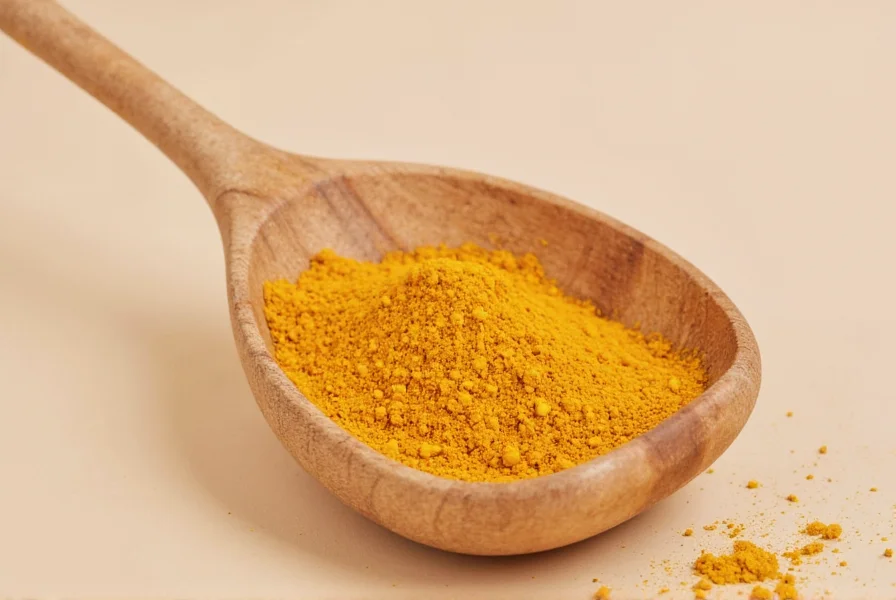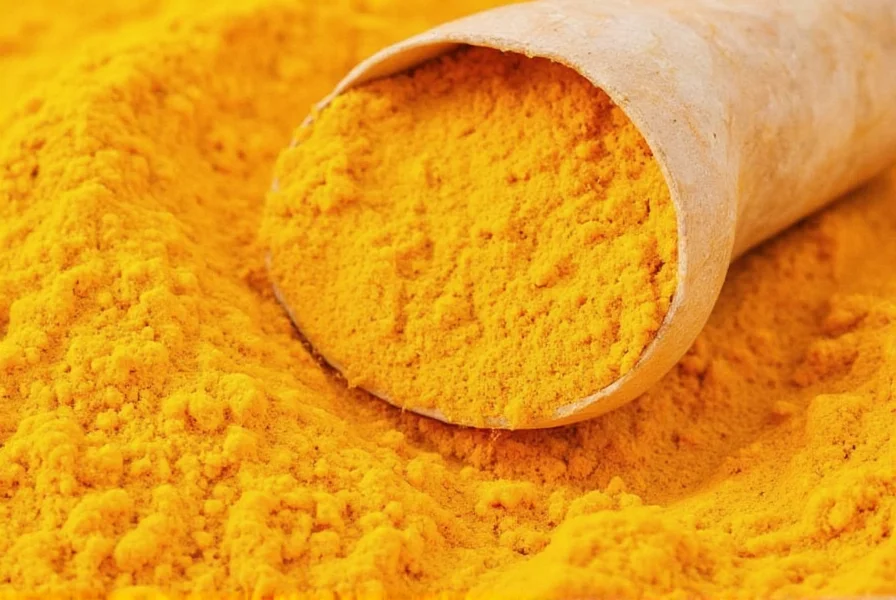The generally recommended daily dosage of turmeric is 1-3 grams of powdered turmeric (about ½ to 1½ teaspoons) for culinary use, and 500-2,000 mg of standardized curcumin supplements per day, typically divided into multiple doses. Most research indicates that consuming more than 8 grams of curcumin daily may cause adverse effects. Individual needs vary based on health status, purpose of use, and turmeric form, so consulting a healthcare provider before starting supplementation is strongly advised, especially for those with medical conditions or taking medications.
When determining how much turmeric should you take daily, it's essential to understand that optimal dosage depends significantly on your specific health goals and the form you're using. Turmeric contains curcumin, its primary active compound responsible for most health benefits, but curcumin makes up only about 3% of raw turmeric by weight. This explains why culinary use requires larger quantities than supplements to achieve therapeutic effects.
Understanding Turmeric Forms and Their Potency
Turmeric comes in several forms, each with different concentration levels that affect appropriate daily intake:
| Turmeric Form | Curcumin Content | Recommended Daily Amount |
|---|---|---|
| Fresh turmeric root | 2-5% | 1-3 inches (2.5-7.5 cm) |
| Dried turmeric powder | 3-5% | 1-3 grams (½-1½ teaspoons) |
| Standardized curcumin supplements | 95% curcuminoids | 500-2,000 mg |
| Curcumin with absorption enhancers | 95% + piperine/lecithin | 250-1,000 mg |
For safe daily turmeric dosage for inflammation, research suggests that 500-1,500 mg of curcumin provides significant anti-inflammatory benefits. A 2022 meta-analysis published in the Journal of Medicinal Food found that doses between 80-1,000 mg daily reduced inflammatory markers in clinical trials, with optimal results typically seen at 500-750 mg taken twice daily.

Evidence-Based Dosage Recommendations by Health Goal
Different health objectives require specific turmeric supplement dosage for arthritis and other conditions:
General Wellness and Prevention
For everyday health maintenance, culinary use provides sufficient benefits. Incorporate 1-2 grams (about 1 teaspoon) of turmeric powder into meals daily. This how much turmeric powder per day is safe amount delivers approximately 30-60 mg of curcumin, which supports overall wellness without risk of side effects.
Joint Pain and Arthritis Management
Studies on turmeric dosage for joint pain indicate that 500 mg of standardized curcumin taken twice daily significantly reduces pain and improves function in osteoarthritis patients. A 2021 clinical trial in Phytotherapy Research showed that 1,000 mg daily of curcumin with turmeric essential oils provided comparable pain relief to 800 mg of ibuprofen, but with fewer gastrointestinal side effects.
Post-Exercise Recovery
Athletes seeking reduced muscle soreness may benefit from 500 mg of curcumin taken twice daily, starting 48 hours before intense exercise. Research in the Journal of the International Society of Sports Nutrition found this best time to take turmeric supplements regimen reduced markers of muscle damage by 25% compared to placebo.
Safety Considerations and Maximum Limits
While turmeric is generally safe, understanding the maximum daily intake of curcumin is crucial. The European Food Safety Authority established an acceptable daily intake of 0.13 mg per pound (0.3 mg per kg) of body weight for curcumin. For a 150-pound (68 kg) person, this equals approximately 20 mg daily from food sources.
Supplemental curcumin requires different considerations. Most clinical trials use doses between 500-8,000 mg daily without serious adverse effects, but the optimal therapeutic window appears to be 500-2,000 mg. Consuming more than 8,000 mg (8 grams) of curcumin daily may cause:
- Gastrointestinal discomfort including nausea and diarrhea
- Increased risk of bleeding, especially when combined with blood thinners
- Potential interactions with diabetes medications
- Lowered iron absorption in susceptible individuals
The question is 1000 mg of turmeric too much depends on the form. One thousand milligrams of turmeric powder contains only about 30 mg of curcumin and is perfectly safe. However, 1,000 mg of standardized curcumin extract represents a therapeutic dose that may interact with certain medications.
Special Population Considerations
Certain groups require modified how much turmeric should you take daily recommendations:
Pregnant and Breastfeeding Women
Culinary amounts of turmeric (up to 1 gram daily) are considered safe during pregnancy and lactation. However, therapeutic supplementation isn't recommended without medical supervision due to limited safety data.
Individuals with Gallbladder Issues
Turmeric may stimulate gallbladder contraction, potentially worsening symptoms for those with gallstones or bile duct obstruction. Consult your physician before use if you have these conditions.
People Taking Medications
Turmeric may interact with blood thinners, diabetes medications, and certain chemotherapy drugs. Always discuss turmeric daily dosage recommendations with your healthcare provider if you take prescription medications.

Maximizing Turmeric Absorption
Curcumin has notoriously poor bioavailability. To enhance absorption and make your daily turmeric intake more effective:
- Combine with black pepper: Piperine in black pepper increases curcumin absorption by up to 2,000%
- Take with healthy fats: Curcumin is fat-soluble, so consume with avocado, olive oil, or nuts
- Choose formulations with absorption enhancers: Look for supplements containing piperine, phospholipids, or nanoparticles
- Divide doses: Taking smaller amounts multiple times daily maintains more consistent blood levels
For those wondering about the best time to take turmeric supplements, consuming them with your largest meal of the day provides optimal absorption due to the fat content in meals.
Quality Matters: Selecting Effective Turmeric Products
Not all turmeric supplements deliver what they promise. When choosing products for your daily turmeric consumption, look for:
- Standardized extracts guaranteeing 95% curcuminoids
- Third-party testing certifications (USP, NSF, ConsumerLab)
- Transparent labeling of curcumin content per serving
- Absorption-enhancing technology (like Meriva, BCM-95, or Longvida)
- Manufacturers providing certificate of analysis
Remember that higher doses don't necessarily mean better results. Research shows that how much turmeric you should take daily for optimal benefits typically falls within the 500-2,000 mg range of standardized curcumin, with diminishing returns at higher doses.
When to Consult a Healthcare Professional
Before establishing your regular turmeric daily dosage, consult with a healthcare provider if you:
- Have a bleeding disorder or take blood-thinning medications
- Have diabetes or take glucose-lowering medications
- Are scheduled for surgery within the next two weeks
- Have gallbladder disease or kidney stones
- Are pregnant or breastfeeding
- Experience persistent gastrointestinal issues
A qualified healthcare provider can help determine the appropriate how much turmeric should you take daily based on your individual health profile, potential medication interactions, and specific wellness goals.
Frequently Asked Questions
Can I take turmeric every day long-term?
Yes, you can safely consume culinary amounts of turmeric (up to 3 grams of powder daily) long-term. For standardized curcumin supplements, studies show safety for up to 8 months at doses of 500-1,500 mg daily. However, consult your healthcare provider for personalized advice about extended supplementation, especially at higher doses.
What happens if I take too much turmeric?
Consuming excessive turmeric (more than 8 grams of curcumin daily) may cause nausea, diarrhea, dizziness, or headaches. High doses can also increase bleeding risk, especially when combined with blood thinners. Long-term excessive intake might lead to iron deficiency in susceptible individuals. If you experience adverse effects, reduce your dosage or discontinue use and consult a healthcare provider.
How long does it take for turmeric to work?
The timeframe varies by health goal. For inflammation and joint pain, most people notice improvements within 4-8 weeks of consistent daily use at therapeutic doses (500-1,500 mg curcumin). Some report reduced muscle soreness within days when taken before exercise. Maximum benefits typically require 8-12 weeks of regular supplementation combined with proper absorption techniques.
Should I take turmeric in the morning or at night?
Take turmeric with your largest meal of the day for optimal absorption, as food (particularly healthy fats) enhances curcumin uptake. Many people prefer taking it with dinner since some formulations may cause mild gastrointestinal effects. If using multiple daily doses, split them between meals. The key is consistency rather than specific timing.
Can I get enough turmeric from food alone?
You can obtain general health benefits from culinary turmeric (1-3 grams powder daily), which provides about 30-90 mg of curcumin. However, therapeutic effects for specific conditions like arthritis typically require 500+ mg of curcumin daily, which would mean consuming 15+ grams of turmeric powder—an impractical amount in food. For targeted health benefits, standardized supplements are usually necessary alongside dietary turmeric.











 浙公网安备
33010002000092号
浙公网安备
33010002000092号 浙B2-20120091-4
浙B2-20120091-4